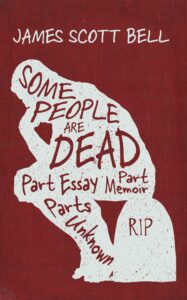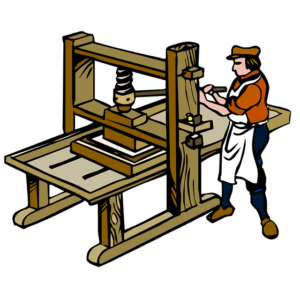Imagination. That’s what writers possess, something invisible and hard to explain to those who don’t have such a gift. Authors have an ability to create worlds, settings, conversation, and even feelings that others can share. Readers find a way to bond with those “people” we’ve created and look forward to the next book, and the next.
I find it interesting that authors can create strong fictional entities who can carry the story, but can be quickly supplanted by a minor character intended to perform some short purpose to push the plot forward, and then depart.
But sometimes this minor supporting character starts to swell up and threaten to take over a book, or series.
Now as I continue with this thought, I suspect I might have written something similar for KillZone, but I’m on a damn tight deadline here (because I got my dates mixed up again and this thing is pouring out) at eleven in the evening, and I don’t have time to look older posts. Bear with me though, because there’s a different thrust this time and it came to mind while the Bride and I were on the road this afternoon.
By my third novel, The Right Side of Wrong, I’d built a small rural world in Northeast Texas back in 1966. The Parker family took center stage with Ned and Becky Parker who are in their golden years, Cody Parker and his (then) girlfriend Norma Faye, who represented the twenty-something crowd, and the near twin twelve-year-old cousins Top (the innocent young boy) and Pepper (a young lady who cusses like a sailor and instigates a number of issues throughout the series).
They were all well received, and reviewers were positive about the characters and series.
Somewhere in the early stages of The Right Side of Wrong (and remember I don’t outline), an old man named Tom Bell showed up out of nowhere. I wondered who he was as my fingers raced across the keyboard. My subconscious had already inserted him into the plot somehow and I was following a dim trail of discovery.
As the story progressed, Tom Bell bought a small house in need of repair, and set about rebuilding it not far from where Top lived with his constable grandfather Ned, and Miss Becky. I allowed my imagination to soar and soon Top spent more and more time with Tom Bell, who showed interest in the youngster and they became friends.
We soon learned that Tom Bell was a retired Texas Ranger seeking peace and solitude after a lifetime of fighting crime. When the plot finally reached the third act, the world around the Parker family went to hell and Tom Bell stepped in to help arrest a few bad guys, and ultimately follow Ned and Sheriff’s Deputy John Washington down across the Rio Grande to rescue Cody Parker from a Mexican prison.
Spoiler alert!
They got Cody out all right, but in the ensuing fight, Tom Bell is shot to pieces as he provides cover for the others to get back into Texas. After an over-the-top ending, the remainder of my ensemble cast lived happily ever after, at least until the next book came out.
There. I was finished with Tom, and had enjoyed this character who came from nowhere and performed his duties with honor and a strong sense of purpose.
Then came signings, and a barrage of questions from readers and hosts alike about why he’d been killed off. I explained those reasons, and for the next couple of years, the verbal assaults continued.
One lady at a signing took me to task over Tom Bell, and said she looked forward to the day that I drowned young Pepper in the Red River, but to bring the old Ranger back!
“All right! I will.”
I checked back and realized I hadn’t killed him off at the end of the novel, but left him for dead, so three years later he returned with a flourish in Gold Dust and the response was overwhelming. Tom grew in successive books, and last year I liked him so much I wrote a prequel to the Red River series entitled The Texas Job, with Tom Bell as the main character.
Set in the early 1930s, we saw him as a young man, and learned what made this guy such a good Texas Ranger. All the ingredients that created this fictional character gave readers insight into his past, and the person they wanted to read about.
I’m getting more requests right now to write the second book in a new series featuring this mythical Ranger. In fact, the novel was so well-received that The Texas Job is a finalist for the Will Rogers Medallion Award and I’ve received a slew of comments and emails about that book, the period in time we fondly call The Great Depression, and Mr. Bell.
So here’s my question to you all out there in BookLand. What is that makes some well-written and strong protagonists take a back seat to one who suddenly steps into the open and beams light? How did we do that?
Is it description?
Action?
Dialogue?
Do they do the things we wish we could?
Did we somehow create our own super hero? And why is he or she more interesting that those characters we started with?
Side note, my daughters say that I’ve written Tom Bell as myself, ten years in the future.
I just wish I was that tough and charismatic.
So whadda ya think? I sure don’t know, but I’d like to hear your thoughts.











 Apropos of our
Apropos of our 


